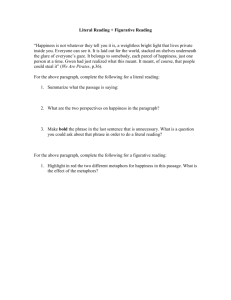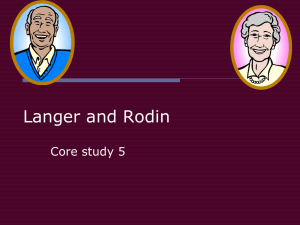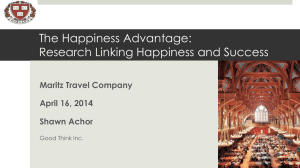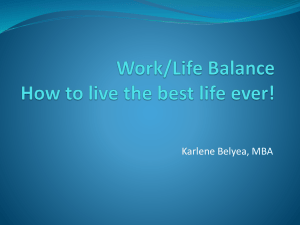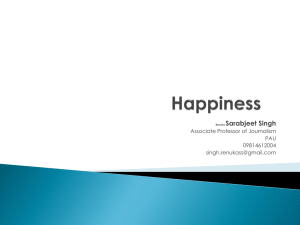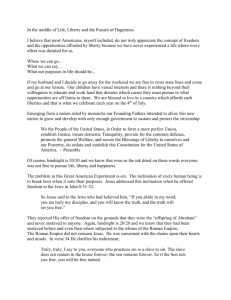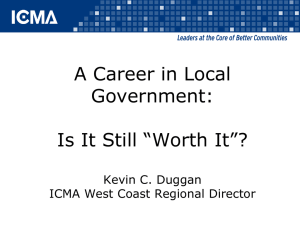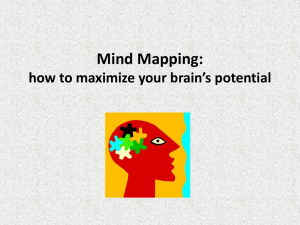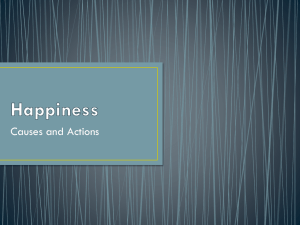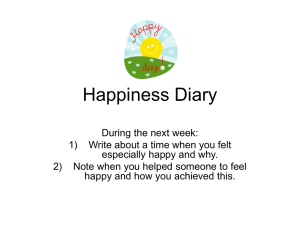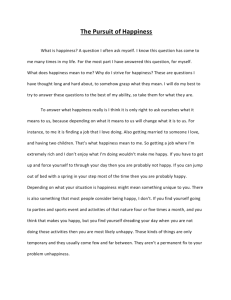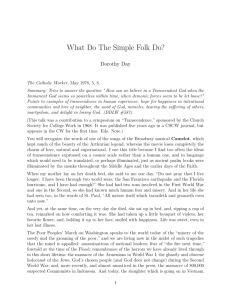Lowery Why young people drop religion
advertisement
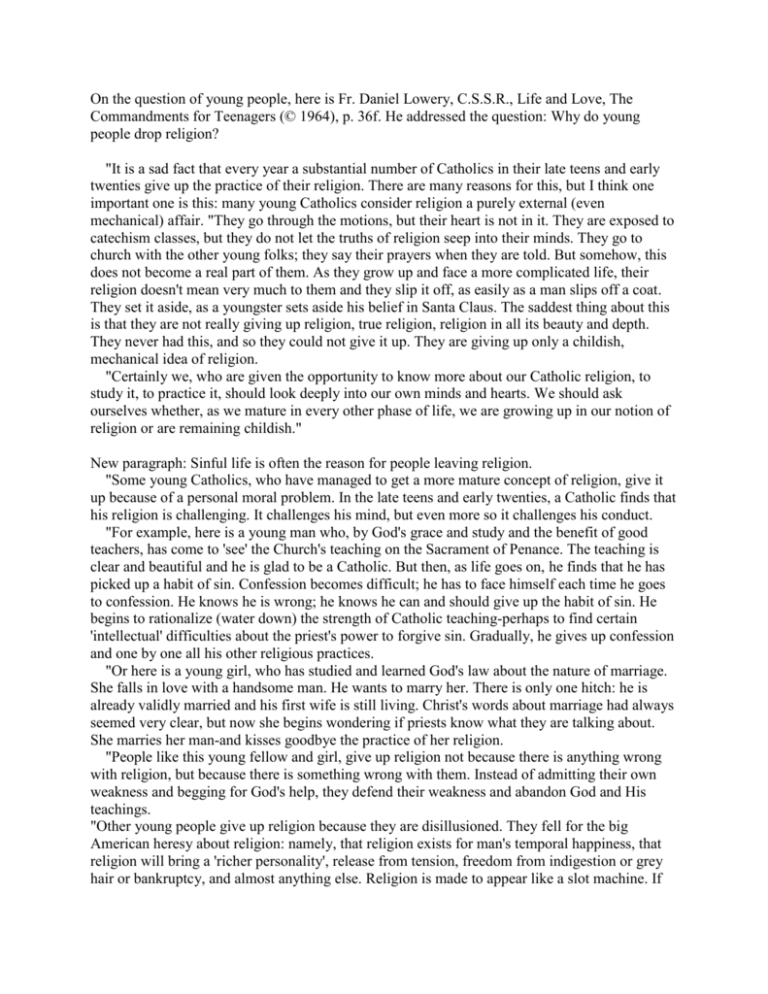
On the question of young people, here is Fr. Daniel Lowery, C.S.S.R., Life and Love, The Commandments for Teenagers (© 1964), p. 36f. He addressed the question: Why do young people drop religion? "It is a sad fact that every year a substantial number of Catholics in their late teens and early twenties give up the practice of their religion. There are many reasons for this, but I think one important one is this: many young Catholics consider religion a purely external (even mechanical) affair. "They go through the motions, but their heart is not in it. They are exposed to catechism classes, but they do not let the truths of religion seep into their minds. They go to church with the other young folks; they say their prayers when they are told. But somehow, this does not become a real part of them. As they grow up and face a more complicated life, their religion doesn't mean very much to them and they slip it off, as easily as a man slips off a coat. They set it aside, as a youngster sets aside his belief in Santa Claus. The saddest thing about this is that they are not really giving up religion, true religion, religion in all its beauty and depth. They never had this, and so they could not give it up. They are giving up only a childish, mechanical idea of religion. "Certainly we, who are given the opportunity to know more about our Catholic religion, to study it, to practice it, should look deeply into our own minds and hearts. We should ask ourselves whether, as we mature in every other phase of life, we are growing up in our notion of religion or are remaining childish." New paragraph: Sinful life is often the reason for people leaving religion. "Some young Catholics, who have managed to get a more mature concept of religion, give it up because of a personal moral problem. In the late teens and early twenties, a Catholic finds that his religion is challenging. It challenges his mind, but even more so it challenges his conduct. "For example, here is a young man who, by God's grace and study and the benefit of good teachers, has come to 'see' the Church's teaching on the Sacrament of Penance. The teaching is clear and beautiful and he is glad to be a Catholic. But then, as life goes on, he finds that he has picked up a habit of sin. Confession becomes difficult; he has to face himself each time he goes to confession. He knows he is wrong; he knows he can and should give up the habit of sin. He begins to rationalize (water down) the strength of Catholic teaching-perhaps to find certain 'intellectual' difficulties about the priest's power to forgive sin. Gradually, he gives up confession and one by one all his other religious practices. "Or here is a young girl, who has studied and learned God's law about the nature of marriage. She falls in love with a handsome man. He wants to marry her. There is only one hitch: he is already validly married and his first wife is still living. Christ's words about marriage had always seemed very clear, but now she begins wondering if priests know what they are talking about. She marries her man-and kisses goodbye the practice of her religion. "People like this young fellow and girl, give up religion not because there is anything wrong with religion, but because there is something wrong with them. Instead of admitting their own weakness and begging for God's help, they defend their weakness and abandon God and His teachings. "Other young people give up religion because they are disillusioned. They fell for the big American heresy about religion: namely, that religion exists for man's temporal happiness, that religion will bring a 'richer personality', release from tension, freedom from indigestion or grey hair or bankruptcy, and almost anything else. Religion is made to appear like a slot machine. If you put in the right coin-by saying your prayers, going to Church, etc.-you will automatically get 'happiness.' "But in real life it does not work that way, and so many people become disenchanted with 'religion'. The basic problem is that those people differ with God as to what religion and true happiness are." New paragraph: Real religion gives purpose to life and real happiness. "Real religion does lead to real happiness. It satisfies our deep longing to know and love the God Who made us. It brings us into contact with Christ, Who has died for us. It teaches us to live our lives according to God's plan. Religion gives purpose to our lives, to our sufferings, to our failures. "Happiness comes from loving and serving other human beings: this is charity and religion teaches us this. Happiness comes from being unselfish and generous with God: religion teaches us to dedicate to Him our lives, our labor, our love. Happiness comes from the peaceful knowledge that we can save our souls and find God forever. Religion teaches us how to save our souls, and helps us to do it."
